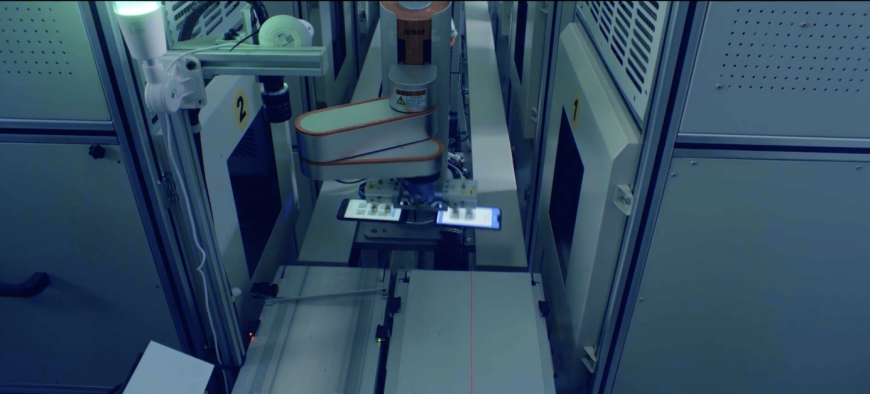Asia is one of the world’s most digitized regions with mobile subscriptions at 58 percent and most households own multiple electronic products from iPhones and iPads to TVs and computers. These products have allowed us to live better and more productive lives but come at a staggering cost in terms of waste.
Every year it is estimated that 53.6 million tons of household electronics are discarded, a number expected to rise to 74.7 million tons by 2030. Much of this either gets dumped in landfill sites or is shipped to developing countries to be stripped of their valuable metals and other parts, often at great environmental and human cost.
Not only that, many of these phones and tablets can continue to play a role and add value even after they have been discarded by the original owner. We need to find a way to both renew idle electronics in a cost-efficient, scalable manner, and then get these electronics to the places where they are actually needed.
Giving a second life to pre-owned electronics through technology
Luckily, technology allows us to do this. While the process of inspecting, testing, and identifying working models is manpower and time-intensive, technology has advanced to such a stage that we are now able to automate the process of pre-owned electronic goods inspection.
For example, ATRenew’s Matrix 2.0 system will start off by inspecting the iPhone from the outside to check for exterior defects using a high-resolution camera. It will then pass the phone on to the next robot that will check its functionality, using ‘robot fingers’ to tap the screen and check what works and what doesn’t. The phone will then go through an x-ray machine that is able to check for internal defects, before being sorted and stored.
Millions of devices are processed using this technology (31.2 million devices in 2021), and they are then sent on to the marketplace with their pricing determined by a proprietary algorithm based on their age, physical condition, depreciation, market conditions, and other factors.
Consumers are now able to sell their old mobile phones via a self-service kiosk. By placing their phone in the kiosk, the device is inspected, and a sale price is issued. If the consumer is satisfied with this, then they receive payment. Over 1,800 kiosks are currently installed across the country making it easier for consumers to recycle their old electronics in a safe and environmentally friendly manner.

Getting electronic devices to where they are needed most
However, while consumers benefit from having high-quality electronic devices at a lower cost, so do those who are most in need. In China, we have been working with rural schools to improve the educational outcomes of their students. Rather than buying books or building schools, we have donated thousands of idle electronic teaching aids, resulting in real educational benefits for thousands of children.
The challenge many rural schools face is getting high-quality teaching equipment. While good teachers are vital, they will be at a disadvantage if they do not have proper teaching aids such as iPads, computers, and other electronics, which are vital to learn with in the modern economy.
Additionally, mobile learning has been found to improve educational outcomes. Good teaching software incorporates gamification and other elements that encourage children to learn more and progress and, importantly, learning via mobile can be done anytime, anywhere.
Together with the charity organization ‘One Window Project,’ we launched a public welfare education program called ‘Recycling Love – Mountain Village Children Digital Education Program.’ The project aims to collect idle electronic technology equipment, build an online teaching system in the village, and help children in the village broaden their horizons through digital online education.
We have donated thousands of idle electronic devices to help children in rural areas broaden their horizons and enjoy a quality education. To date, ATRenew has helped over 52 schools in rural China, donating thousands of tablet computers, electronic blackboards, smartphones, and other electronic teaching aids. The program not only provided these electronic devices but concurrently worked to provide high-quality teaching software and course content, allowing rural kids to expand their knowledge and acquire a good education.
Over 9,840 students have benefitted from these devices, completing over 1,968 hours of digital learning. They learnt on devices that were second-hand, they had been pre-owned but thanks to technology that inspected each and every device, tested them, and ensured privacy clearance and quality control. These devices were given a new lease of life instead of lying idle.
Much of this learning was done on software that was also donated, using WiFi internet provided by the company. Programs that benefitted include a music support teaching program, picture book program, and science and technology summer camp. The electronic devices allowed for a more diversified teaching program that provided exposure to technology for the children and increased the overall standard of education.
The Circular Economy is more than just a buzzword. At its best, not only does it reduce waste, but it democratizes technology, making it more accessible to those who are less fortunate. As Asia continues to grow and develop we will inevitably produce more and more e-waste. Rather than throw it all away, let us renew our old phones and send them to where they are most needed.
 Kerry Chen is the CEO of ATRenew. Headquartered in Shanghai, ATRenew Inc. (ATRenew) (NYSE:RERE) operates a leading technology-driven pre-owned consumer electronics transactions and services platform. The mission of ATRenew (which stands for “All Things Renew”) is to give a second life to all idle goods, reflecting their commitment to building an enterprise with ESG embedded in its genes. ATRenew's open platform integrates C2B, B2B, and B2C capabilities to empower online and offline transaction services of pre-owned electronic products.
Kerry Chen is the CEO of ATRenew. Headquartered in Shanghai, ATRenew Inc. (ATRenew) (NYSE:RERE) operates a leading technology-driven pre-owned consumer electronics transactions and services platform. The mission of ATRenew (which stands for “All Things Renew”) is to give a second life to all idle goods, reflecting their commitment to building an enterprise with ESG embedded in its genes. ATRenew's open platform integrates C2B, B2B, and B2C capabilities to empower online and offline transaction services of pre-owned electronic products.
TechNode Global INSIDER publishes contributions relevant to entrepreneurship and innovation. You may submit your own original or published contributions subject to editorial discretion.
Now on its third year, the ORIGIN Innovation Awards draws inspiration from the United Nations Sustainable Development Goals (SDGs) and seeks to recognize and celebrate exemplary entrepreneurs, businesses, investors, and innovation ecosystem drivers that embody the spirit of outstanding innovation and are actively promulgating sustainability in their business practices. Nominations are now ongoing.

